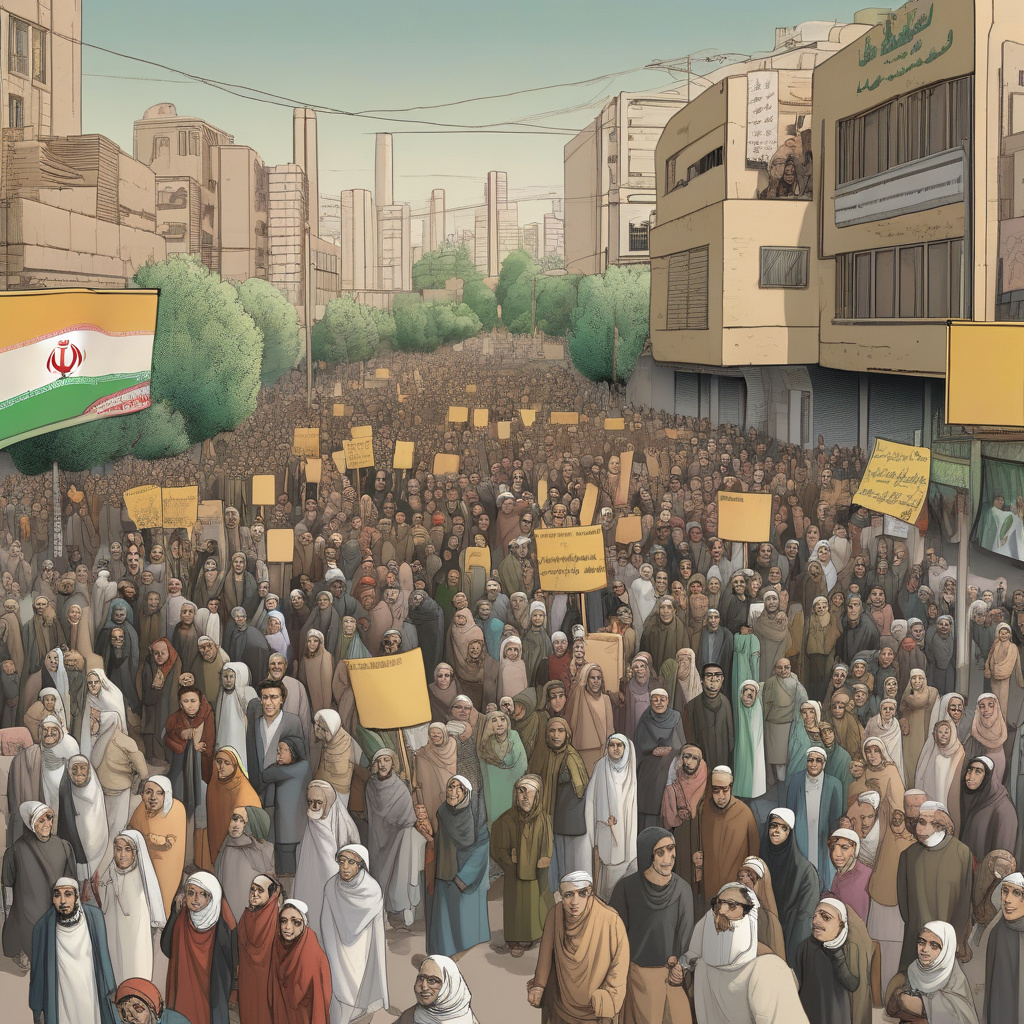Energy Crisis in Iran Sparks Protests Over Crypto Mining
The energy crisis in Iran has reached a boiling point, igniting widespread protests across the country. The demonstrations, which have now spread to various Iranian towns, are fueled by the frustration of residents over persistent electricity cuts, water shortages, and the detrimental effects of crypto mining operations on the nation’s power grid.
Iran, a country rich in oil and gas reserves, is currently facing a severe energy crisis that has been exacerbated by a combination of factors, including mismanagement of resources, economic sanctions, and a growing demand for electricity. The situation has been further complicated by the increasing prevalence of cryptocurrency mining operations, which consume a significant amount of energy.
Crypto mining, the process by which new transactions are added to a blockchain and new coins are minted, requires a substantial amount of computational power. This energy-intensive process has become increasingly popular in Iran due to the relatively low cost of electricity, making it an attractive location for miners looking to maximize their profits.
However, the surge in crypto mining activity has put additional strain on Iran’s already overburdened power grid, leading to frequent blackouts and disruptions in electricity supply. This has had a direct impact on the daily lives of Iranian citizens, many of whom are struggling to cope with the lack of reliable access to electricity and water.
In response to these challenges, residents across Iran have taken to the streets to demand action from the government. The protests, which have been met with a heavy-handed crackdown by security forces, reflect the deep-seated frustrations of the Iranian people over the deteriorating living conditions in the country.
The Iranian government, for its part, has taken steps to address the energy crisis, including implementing temporary bans on crypto mining and launching campaigns to encourage energy conservation. However, these measures have so far been insufficient to alleviate the pressure on the power grid or satisfy the demands of the protesting citizens.
The situation in Iran serves as a stark reminder of the complex interplay between energy, technology, and governance in the modern world. As cryptocurrencies continue to rise in popularity and energy consumption patterns evolve, policymakers will be faced with the challenge of balancing the benefits of technological innovation with the need to ensure sustainable and equitable access to essential resources.
In the case of Iran, the energy crisis has underscored the urgent need for a comprehensive strategy to manage energy resources effectively, regulate crypto mining activities, and address the grievances of the population. Failure to do so risks further exacerbating social unrest and economic instability in the country.
As the protests in Iran continue to unfold, it remains to be seen how the government will respond to the demands of its citizens and what the long-term implications of the energy crisis will be for the country’s economy and political stability. One thing is clear: the intersection of energy, crypto mining, and social protest has brought to light the pressing need for sustainable energy solutions and responsible governance in an increasingly interconnected world.
energy crisis, Iran, protests, crypto mining, sustainability












